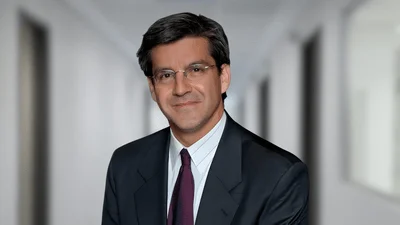Mark Glennon, Founder at Wirepoints | Wirepoints
Mark Glennon, Founder at Wirepoints | Wirepoints
Illinois property owners don’t need a reminder that their property taxes are consistently first or second highest in the nation. They should also know, however, that it’s likely to get worse.
Public union contracts across the state will be coming up for renewal. Inflation has taken 17 cents off the value of every dollar over the last three years, so you can be sure government workers will demand raises. For schools alone, over 200 districts have contracts up for renewal this year and over 300 are up next year, according to the Illinois Board of Education.
Chicago is showing the way. There, despite his firm campaign promise not to raise property taxes, Mayor Brandon Johnson’s office recently claimed it was powerless to stop a five percent property tax increase sought by the Chicago school district to cover its new budget.
A major reason to be fearful is that those contracts are negotiated in secret then popped on the public with little chance to object. Illinois is one of just 10 states that keep negotiations closed to the public. Forget taxpayers. Forget parents. Forget residents. They only find out what’s in a contract once it’s been agreed to -- when it’s too late. It’s all part of our state’s public sector collective bargaining rules.
Here's a question that never seems to be asked: “With the state putting more money into local schools each year, shouldn’t there be relief on property taxes?” The state has indeed been increasing funding dramatically under its “evidence-based school funding formula,” providing an additional $1.6 billion over the last five years.
But that’s not nearly enough, according to the formula. Even at its current rate of increase, “the state is not close to being on track for satisfying the obligation to fund” the formula up to its target by 2027. That’s according to the Center for Tax and Budget Accountability, a key author of the formula. And 70 percent of the state’s school districts currently have less funding than the formula, it says.
In short, the schools and officeholders want more. Much more. Never mind that Illinois is already the 9th-highest spender per student in the country. Or that school taxes are the lion’s share of your property taxes.
There’s an interesting history lesson here. Illinois has long considered a “tax swap,” which is the notion that property taxes should be reduced dollar for dollar against a statewide tax increase. A tax swap proposal failed in 1997, short by just one vote in the Illinois Senate. One reason for opposition was that the state tax increase would materialize but the property tax cuts would never happen. That concern sure seems to have been validated by today’s experience with increased state funding and no reductions in property taxes.
Unfortunately, more money hasn’t meant better results for students, which we’ve been documenting extensively at Wirepoints. Only 30 out of every 100 students in Illinois can read at grade level. For math, it’s even worse.
The real solution is not blindly throwing more money at public schools and expecting better results. Instead, rules permitting secret contract negotiations must be changed. School spending and the state formula must be scrutinized to fund only what works. Universal school choice should be state law. And a range of other drastic reforms must be implemented to make Illinois competitive again, both on its total tax burden and quality of services delivered.
Mark Glennon is founder of Wirepoints, and independent research and commentary nonprofit organization





 Alerts Sign-up
Alerts Sign-up